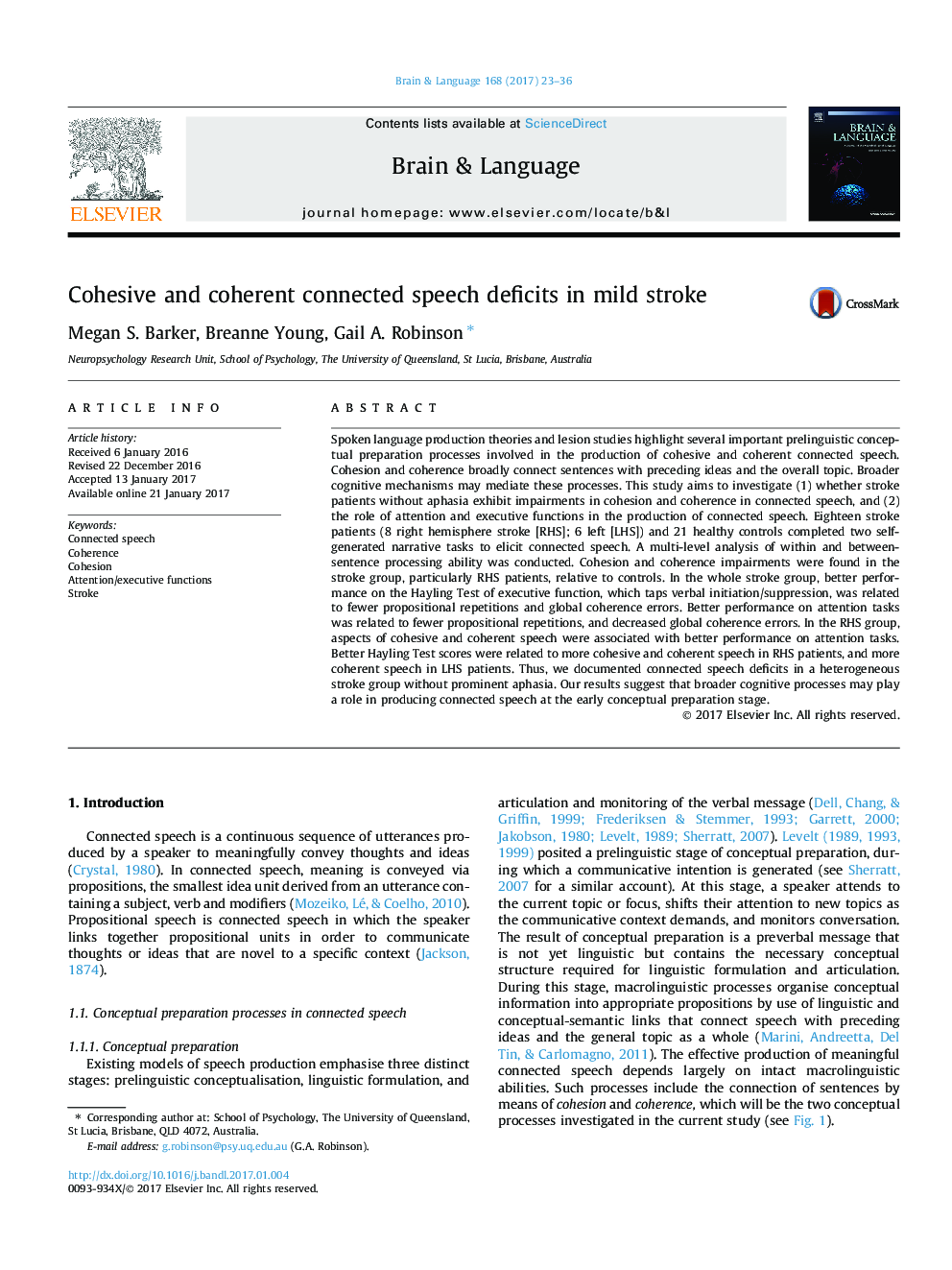| Article ID | Journal | Published Year | Pages | File Type |
|---|---|---|---|---|
| 5041348 | Brain and Language | 2017 | 14 Pages |
â¢Cohesion and coherence deficits in connected speech of stroke patients without aphasia.â¢Coherence and cohesion are associated with selective/sustained attention and executive functions.â¢Attention and executive functions play a role at the conceptual preparation stage of speech production.
Spoken language production theories and lesion studies highlight several important prelinguistic conceptual preparation processes involved in the production of cohesive and coherent connected speech. Cohesion and coherence broadly connect sentences with preceding ideas and the overall topic. Broader cognitive mechanisms may mediate these processes. This study aims to investigate (1) whether stroke patients without aphasia exhibit impairments in cohesion and coherence in connected speech, and (2) the role of attention and executive functions in the production of connected speech. Eighteen stroke patients (8 right hemisphere stroke [RHS]; 6 left [LHS]) and 21 healthy controls completed two self-generated narrative tasks to elicit connected speech. A multi-level analysis of within and between-sentence processing ability was conducted. Cohesion and coherence impairments were found in the stroke group, particularly RHS patients, relative to controls. In the whole stroke group, better performance on the Hayling Test of executive function, which taps verbal initiation/suppression, was related to fewer propositional repetitions and global coherence errors. Better performance on attention tasks was related to fewer propositional repetitions, and decreased global coherence errors. In the RHS group, aspects of cohesive and coherent speech were associated with better performance on attention tasks. Better Hayling Test scores were related to more cohesive and coherent speech in RHS patients, and more coherent speech in LHS patients. Thus, we documented connected speech deficits in a heterogeneous stroke group without prominent aphasia. Our results suggest that broader cognitive processes may play a role in producing connected speech at the early conceptual preparation stage.
